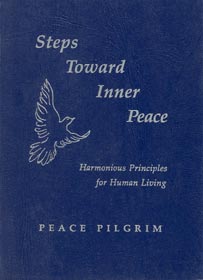 Peace comes into our hearts when we reach out to bless the children around us. Children have a trusting, sincere quality that invokes the best in us, that inspires us to love ourselves and others better. As we seek to serve the children in our communities, we will discover that they give us more than we ever give them. There is nothing more priceless than the love of a child.
Peace comes into our hearts when we reach out to bless the children around us. Children have a trusting, sincere quality that invokes the best in us, that inspires us to love ourselves and others better. As we seek to serve the children in our communities, we will discover that they give us more than we ever give them. There is nothing more priceless than the love of a child.The first African American woman admitted to the Mississippi state bar, Marian Wright Edelman cares so deeply about children that she founded the Children's Defense Fund. She has published her ideas in several books, including The Measure of Our Success: A Letter to My Children and Yours. She is a pioneer is speaking up for the rights of children that are often neglected in our cultures.
Consider some of her thoughts as they relate to enhancing your inner peace and joy:
• Service is the rent we pay to be living. It is the very purpose of life and not something you do in your spare time.
• If you don't like the way the world is, you change it. You have an obligation to change it. You just do it one step at a time.
• If we don't stand up for children, then we don't stand for much.
• I'm doing what I think I was put on this earth to do. And I'm really grateful to have something that I'm passionate about and that I think is profoundly important.
• You really can change the world if you care enough.
• Service is what life is all about.
• When I fight about what is going on in the neighborhood, or when I fight about what is happening to other people's children, I'm doing that because I want to leave a community and a world that is better than the one I found.
• Never work just for money or for power. They won't save your soul or help you sleep at night.
• I don't care what my children choose to do professionally, just as long as within their choices they understand they've got to give something back.
• If you as parents cut corners, your children will too. If you lie, they will too. If you spend all your money on yourselves and tithe no portion of it for charities, colleges, churches, synagogues, and civic causes, your children won't either. And if parents snicker at racial and gender jokes, another generation will pass on the poison adults still have not had the courage to snuff out.
• Being considerate of others will take you and your children further in life than any college or professional degree.
• You're not obligated to win. You're obligated to keep trying to do the best you can every day.
• We must not, in trying to think about how we can make a big difference, ignore the small daily differences we can make which, over time, add up to big differences that we often cannot foresee.
• When Jesus Christ asked little children to come to him, he didn't say only rich children, or White children, or children with two-parent families, or children who didn't have a mental or physical handicap. He said, "Let all children come unto me."
© Carol Brown






